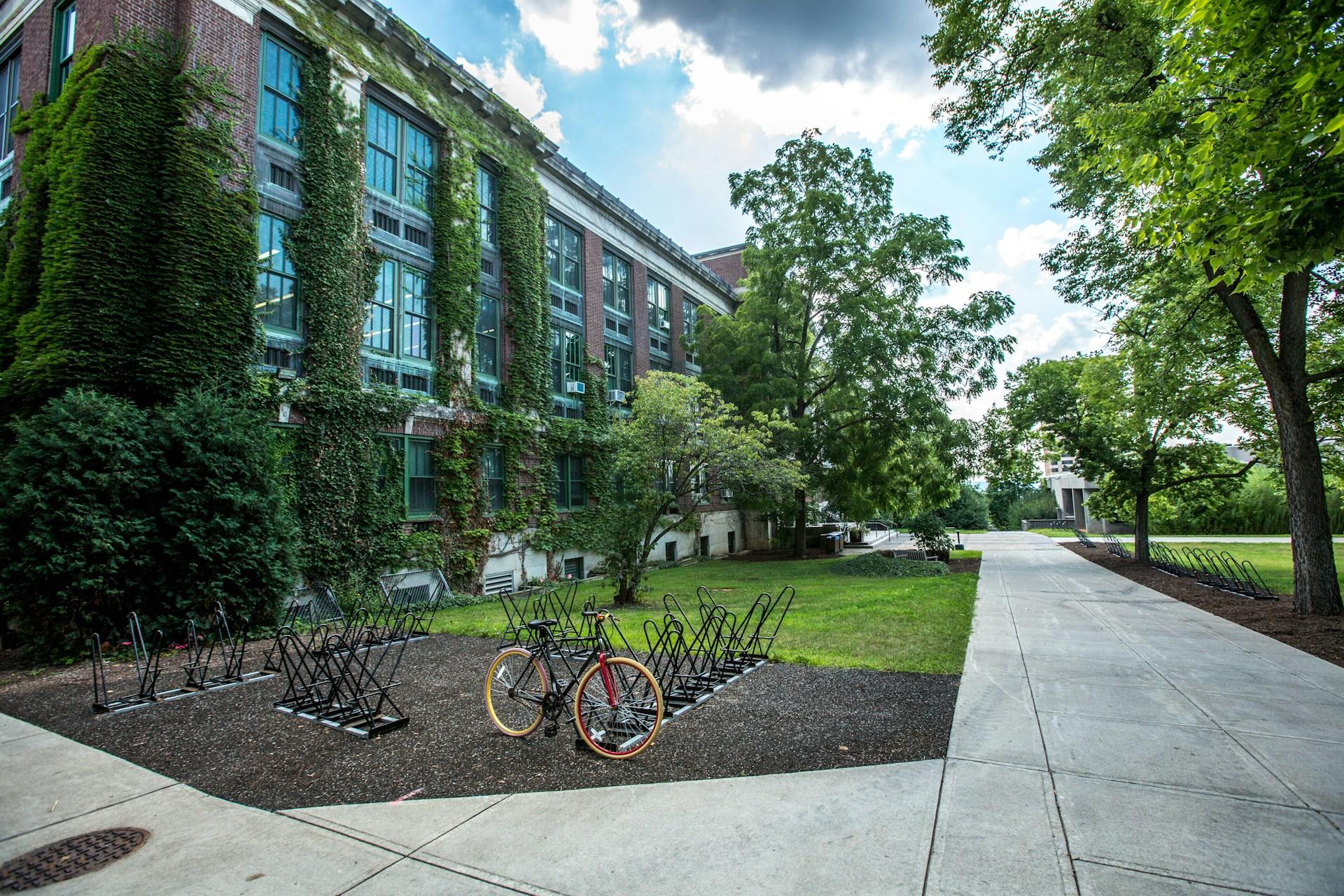More people than ever are going to university these days and in recent times, for those who haven’t decided to go into a trade or start working earlier on their journey, the university experience has become a staple of many young adults' formative experience.
For extroverts and socialites, this is a prime opportunity to make new friends and try new things, but for those who aren’t so socially inclined, those first few weeks might be a veritable labyrinth to navigate. Fortunately, Superprof is here to help!
In this article, we’ll be having a look at what new students can expect from university life. It’ll also act as a sort of guide to help you tick all the boxes and hit the ground running for what many call the best years of your life!

How to Prepare for University?: Student Finances
If you are studying in the UK, there is one absolute imperative that you need to sort out before you consider anything like socialising, nights out and attending freshers. Getting your student finances sorted out is something you need to do ideally right after getting your uni offer accepted.
Why is it so important?
For one, student finances are what cover the cost of tuition fees for most students, which means that in order for your university course to receive their payments and in some cases, even be on the class register, your student finance application needs to be completed.
Along with the university itself, comes the cost of accommodation and living expenses, which are also provided for. If you don’t remember to sort out your student finances, you can end up unable to afford food or rent.
While that might sound like a scary prospect, you don’t need to worry at all, since doing your student finance application doesn’t take long at all.
How to do your student finance application
This process differs slightly depending on where in the UK you will be studying, but in all cases, it’s as simple as searching up ‘student finance’ followed by whichever region you’ll be studying in. Let’s say, for example, you are going to be studying in Wales…
In this case, you would search up ‘Student Finance Wales’, and the first result would be exactly what you’re looking for. (Sometimes ads can pop up first in the results, so be careful).
Make sure to additionally check out the gov.uk website, which offers help and advice for new students, regardless of where they are studying in the UK.
Once you’ve found the relevant website, take a good look around and make sure that you choose the right kind of studies to apply for. If you’re reading this article, then the likelihood is you should be applying for undergraduate funding.
Once you’re ready to start your application, make sure you have your bank details, national insurance number and passport at the ready and simply fill out the questions accurately and honestly.
Once you’re done, all you have left to do is wait for a correspondence confirming your application's approval.

When does University Start?: Freshers Fayre/Freshers Week
Freshers' week is usually the first week or two of term, or even the week before term starts, where there are multiple events for new students.
University typically starts in early September and this coincides with one of the most important opportunities you’ll have as a new student, which is freshers week, which usually accounts for the first week or two of term, or in some cases, the week before term starts.
This event, or series of events, is organised by both the students and the university itself as a way of breaking the ice for new students and giving everybody a fair chance to enjoy their first few nights of uni life in a safe and low-pressure environment.
The events consist of everything from clubbing, to more relaxed social events like workshops. In either case, the one thing you can consistently expect is that these events will be deliberately set up to be exclusive to new and returning students.
Meaning that you’ll be completely surrounded by like-minded students and even if you’re the introverted type, you won’t have to worry about making the first move and introducing yourself to people, because the organisers will do their best to get you involved.
Another great thing about freshers is that the activities will all be deliberately priced down so that you can enjoy the full experience without needing to worry about breaking the bank.
Societies
The last thing we’ll mention about freshers is actually one of the main appeals, especially for the students who aren’t into nightlife.
The fair itself is definitely worth attending and while you’re there, you’ll be able to pick up a ton of free goodies and little bits and bobs from the stands. But the most important thing you’ll pick up are connections.
The fayre is where the societies and clubs at your university go to present themselves to new students who might be interested in joining them.
If you enjoy a certain sport or take part in any kind of hobby or regular activity, chances are, your university will have a club or society dedicated to that very thing.
Make sure to seek them out, since one of the easiest ways to get to know people and integrate into your new city/lifestyle is to get together with people who already share common interests.
Even if you don’t have a particular hobby or interest, most of these societies are very welcoming to newbies and beginners, so don’t let any ideas like ‘I’m not good enough’, or ‘I’ve never tried this before’, stop you from giving it a shot.
You never know what amazing experiences are waiting for you if you just try.
Campus Orientation
While this isn’t actually part of the freshers' events, it is quite important and usually happens around the same time. In this case, it’s less about what you gain when you go, but more about the inconvenience you’ll run into if you miss out.
If you want to spend your year productively working and have time left over to party and socialise, the last thing you want to be doing is running around asking people where this and that is and how to find your way around campus, halfway through your term.

Not only is this a big waste of time, but it's also quite awkward to ask peers about something that everybody knows already. I think we’ve made our point.
So make sure you check your emails and get clued in about when and where to go to get oriented on campus. It’s something you definitely don’t want to miss out on!
Where will you stay? Uni Halls or Private Accommodation
For most students, especially those who are studying in a new town/city, it’s normal to end up in university provided accommodation. There are different kinds, but we’ll talk about the two most common types, ‘private halls’ and ‘uni accommodation’.
Uni Accommodation
This kind of accommodation is the most common, and it is provided by the university itself, which also means that the cost is covered by your student-finance loan. Since some rooms are naturally more appealing than others, it’s often the case that rooms will be assigned at random, for the sake of fairness. But don’t worry, when applying for accommodation, you’ll be able to submit your unique needs and preferences.
This means that the only thing that’s really up to chance is whether you get the best view in the building or comparable things.
When moving into uni halls, whether you find yourself in a smaller unit, or a huge complex, your own living space will be a separate part, shared between usually 4–8 people. Of course, we don’t mean you’ll be sharing beds, but rather necessities like the kitchens and sometimes the bathrooms might be shared.
For this reason, we cannot recommend enough that you make a good effort to get to know your fellow residents, since you’ll have to share and delegate responsibilities between each other and no-one wants to be known as the bad housemate.
Accommodation provided by the university itself, chosen at random and covered by the student loan. You'll have a living space with shared necessities between 4-8 people.
Private Halls
One of the only differences between private halls and uni accommodation is the provider. In this case, accommodation is provided by a private company, a commercial company, hence the name private halls.
Despite the name, on a typical student budget, you’ll still be sharing your kitchen and living room with a few others, although private halls have a tendency to offer slightly more individual privacy, in the forms of en-suite bathrooms and cooking spaces.
One of the other key differences with private halls is that because they aren’t affiliated directly with the university, you might end up living with students who aren’t in the same university, let alone the same course as you.
Private Houses
Unlike living in halls, living in a private house provides you with flexibility in many ways. Firstly there is almost no boundary on the location. If you would prefer to live further away from your uni and commute every day, you can make that choice. Conversely, if you want to live close to your uni, you can.
You also have a better choice of living environment and roommates. You can choose houses based on the bedroom you may want, and can also sometimes choose your housemates if there are people already staying there for the following year. If you're attending the same university as some of your friends, you can opt to rent all of the rooms in one house, making the move less daunting and socially challenging.
There is a higher level of independence and control when living in a private house. There are often more choices for where you shop, eat or socialise. This also means more privacy, especially if living in a larger shared house with the same number of people as you would be grouped within halls.
Whichever you end up in, make your best effort to be a model housemate, cleaning up after yourself and taking out the bins when it’s your turn etc. If you do so, we promise you’ll be popular, (at least domestically).

Afterword
Thank you for reading our quick guide on getting started with uni life. If you want to read more about the uni experience (including essentials) or a wide variety of different academic topics, check out the rest of the Superprof blog. We’re sure something will take your fancy.
While you’re here, why not check out Superprof’s premier service, which puts you in touch with the best-rated educators near you, helping you to supercharge your education journey.
We hope to see you again soon… Bye for now!
Summarise with AI:






















